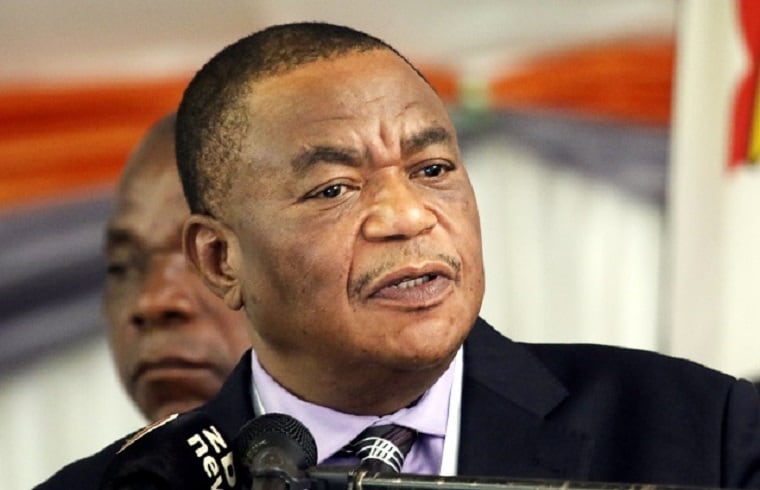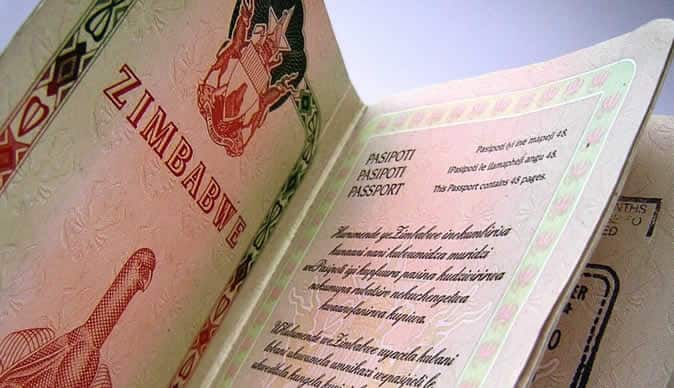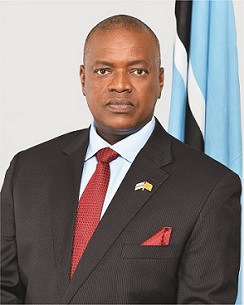Minister of Health and Child Care, Dr Constantino Chiwenga has presented to Parliament the position paper on age of consent to contraceptives.
THE VICE PRESIDENT AND MINISTER OF HEALTH AND CHILD CARE (HON. GEN. (RTD.) DR. CHIWENGA): Mr Speaker Sir, I present to you the position paper on the age of consent to access medical services related to sexual and reproductive health raised by the Portfolio Committee on Health and Child Care.
To proceed, we need to understand the following: – what are sexual and reproductive services? Sexual and reproductive health services are medical services related to the reproductive system, they also provide antenatal care, contraception provision, both modern and emergency, HIV testing and counselling, HP vaccines and cervical cancer screening and treatment, post-exposure prophylaxis and safe abortions and post-abortion care, intrapartum and postnatal care.
Adolescence, according to the World Health Organsiation, are those people between 10 and 19 years of age. The great majority of adolescence are therefore included in the age based definition of child as defined by the Constitution and also as adopted by the convention on the rights of the child as a person under the age of 18 years.
Mr. Speaker Sir, Zimbabwe legal framework on sexual and reproductive health services, the Constitution of Zimbabwe Amendment (Number 20) Act 2013, the general access to health care provision in the Constitution is Section 76 which provides as follows, “every citizen and permanent resident of Zimbabwe has the right to have access to basic health care services including reproductive health care services”. In terms of Section 81, a child is defined as every boy and girl under the age of 18 years. Section 18 (1E) provides for children to be protected from sexual exploitation. Section 20 defines youths as from 15 to 35 years; Section 20 (1E), states that youths must be protected from harmful cultural practices, exploitation and all forms of abuse.
Mr. Speaker Sir, Public Health Act Chapter 15:17, for health services for which age of consent is not specified, the Public Health Act guides service provision. Section 35 of the Act provides for consent of the user, it states that “informed consent”, means sent for the provision of a specified health service given by a person with the legal capacity to do so and who has been informed. This Section specifies the need for informed consent given by a person with the illegal capacity to do so. This infers that anyone less than 18 years, has no legal capacity and cannot consent. This is in alignment with the Constitution of Zimbabwe.
The Criminal Law Codification and Reform Act Chapter 9:23 – on the age of consent to sexual activities; in Zimbabwe, sexual relations with a girl aged 12 years or below is rape as girls in this age bracket are not seen to have the capacity to consent to sexual relations. As for ages 13 to 15, it gets more complicated as per the criminal law and Codification Act of 2004 Chapter 9:23, Section 63 and 70, sexual relations with a person of or above 13 but under 15 is presumed to be rape unless there is evidence to show that the person was capable of consenting and did so.
This assumption of lacking capacity to consent does not apply to those who are 15 years. It is then up to the courts to decide if there was consent. Another potential result of the way this registration is applied is that boys who are just one or two years older than their female partners gain a criminal record for engaging in consensual sexual activities if it goes to court even though they are not yet adults.
Section 63 of the Cord provides that a boy over the age of 12 years but below the age of 14 years shall be presumed incapable of performing sexual intercourse. The contrary is shown on a balance of probabilities.
Section 17 (3), “It shall be a defense to a charge under subsection 1 for the accused person to satisfy the court that he or she had reasonable cause to believe that the young person concerned was of or over the age of 16 years at the time of the arranged crime; provided that the apparent physical maturity of the young person concerned shall not, on its own, constitute reasonable cause for the purposes of the subsection”
Section 64 (1) states that a person accused of engaging in sexual intercourse, anal sexual intercourse or other sexual conduct with a young person of or under the age of 12 years shall be charged with rape, aggravated indecent assault as the case maybe and or which sexual intercourse or performing an indecent act with a young person or sodomy.
Coming to the age of consent to marry, Section 78 (1) of the Constitution of Zimbabwe provides that only persons who have attained the age of 18 years have the right to found a family. This was tested and confirmed in a landmark Constitutional Court case decision in 2016 to also mean entering a marriage. In the court case, the court concluded that Section 78 (1) of the Constitution sets 18 years as the minimum age of marriage. Any law or practice or custom authorising a person less than 18 years to marry is invalid with effect from 20 January, 2016. The Marriages Bill of 2019 will align and set the age of marriage at 18 years for all marriages and for both genders.
On the Children’s Act Chapter 506, Section 76 (1) where the consent of a parent or guardian is necessary for the performance of any dental, medical, surgical or other treatment upon a minor and the consent of the parent or guardian is refused or cannot be obtained within a period which is reasonable in the circumstances. Application may be made to a magistrate of the province where the minor is or is resident for authority to perform the treatment. A magistrate, to whom an application in terms of subsection (1) is made, may:
a. After due enquiry and after affording the parent or guardian consent, a reasonable opportunity of stating his/her reason for refusing to give the necessary consent or without affording such person such opportunity if his/her whereabouts are unknown or if in the circumstances it is not reasonably practicable to afford him such opportunity;
b. If satisfied that any dental, medical, surgical or other treatment is necessary or desirable in the interests of the health of the minor by order in writing, authorise the performance at a hospital or other suitable place upon the minor concerned for such dental, medical, surgical or other treatment as maybe specified in the order; and
c. Where authority for the performance of any treatment has been given in terms of subsection (2), the person legally liable to maintain the minor concerned shall be liable for the treatment.
7. Age of Consent on access to Antenatal Care (ANC)
Section 76 of the Constitution contains a right to healthcare which can be interpreted to include the right of women to access maternal health care, regardless of age. Thus, if a young person requires ante-natal care they should be able to access it with their parents/guardians’ consent if under 16 years or with the magistrate’s consent in instances where parental consent is refused/unavailable.
1. Every citizen and permanent resident of Zimbabwe has the right to have access to basic health care services including reproductive health care services.
2. Every person living with a chronic illness has the right to have access to basic health care services for the illness.
3. No person may be refused emergency medical treatment in any health care institution.
Mr. Speaker Sir, there are numerous challenges posed by these various statutory clauses as presented.
1. The age of consent to sexual intercourse is set at 16 years for both males and females who are unmarried. The Criminal Law Codification and Reform Act currently provides that the age of consent to sexual activity for married couples is 12 years. Section 70 (1) (a) of the Criminal Law Codification and Reform Act, Chapter 9:23 reveals that the offence of “sexual intercourse with young persons” will only attach where the perpetrator has “extra marital sexual intercourse” with a young person. This poses challenges as it tries to link sexual activity with marriage.
2. Access to contraception services and commodities: the country does not have legislation specifying the age limit below which parental consent is required to receive medical treatment.
However, the common practice is that parental consent is required to provide medical treatment to a child under 16 years. In addition, since a child under the age of 16 years cannot consent to sexual intercourse in practice, it is presumed that a child under the age of 16 years does not need contraceptives. Emergency contraceptives would be considered a form of medical treatment and therefore, individuals aged under 16 would require parental consent to access them in practice.
In addition, there is a Government initiative under which contraceptives are available without a prescription and without parental consent at Government hospitals to children aged between 16 and 18 years. There are however, no age restrictions regarding access to contraceptives that are in the form of the barrier methods such as condoms that are readily available over the counter without parental consent being required.
3. HIV testing and accessing results: Children under 16 may consent to HIV if they are married, pregnant or a parent, or they can demonstrate that they are mature enough to make a decision on their own. In addition, if a parent or care-giver cannot or will not give consent for a child under 16 years, the attending health worker can seek approval from hospital authorities or Minister to give treatment without parental consent if it is in the best interest of the child. The requirement to “demonstrate that they are mature enough to make the decision on their own” raises challenges as it is vague.
4. Anti-Retroviral Therapy and treatment of HIV: The country provides for treatment of children but does not mention age of consent. In practice, a child under the age of 16 will require parental or guardians’ consent as with any other medical treatment.
5. Age of Consent to report HIV status directly to adolescents: Test results will be reported directly to the patient from the age of 16 years, or on assessment of maturity by the health service provider if the child is under the age of 16 years.
6. Age of Consent and access to Anti-Retroviral Therapy (ART). The guidelines for ART and treatment of HIV in Zimbabwe provide for treatment of children, but do not mention age of consent. In practice, a child under the age of 16 will still require parental or guardians’ consent as with any other medical treatment. Prevention of mother-to-child transmission has also been well administered in Zimbabwe.
7. Pre-exposure Prophylaxis (PrEP) in Zimbabwe so far suggests that it will be aimed specifically at high-risk populations such as sex workers and young women aged 15-24. It is therefore difficult to determine at what age pre-exposure prophylaxis would be available without parental consent.
8. Post-exposure prophylaxis: HIV-post-exposure prophylaxis (PEP) is highly controlled in Zimbabwe. It is prohibited except in specific circumstances. A person would only be able to access it if it was an issue of sexual assault or if a health professional has been exposed as part of their work.
9. Increased numbers of illegal abortions and a threat to women’s health due to the criminalisation of abortion.
Mr. Speaker Sir, key current Ministry of Health and Child Care responses to sexual and reproductive health needs of adolescents:
The Adolescent Sexual Reproductive Health Strategy 2016-2021.
The strategy provides guidelines on the provision of age appropriate adolescent sexual reproductive services. The underlying principle of the strategy is in providing services that are in the best interest of the child, given their present circumstances. The strategy aims to reduce morbidity and mortality associated with adolescent sexual reproductive services activity among adolescents and young people, through increasing safe sexual health and HIV practices, increasing uptake of quality youth friendly integrated adolescent sexual reproductive services and HIV services and strengthening the protective environment for adolescence and young people.
Some of the strategies include:
ü Provision of friendly sexual and reproductive health services as an entry point for expanding adolescent health;
ü Establishment and creation of community based spaces for parent-child communication on sexual and reproductive health;
ü Capacity building of the health workforce (both pre and in-service) to provide quality, friendly and age-appropriate sexual and reproductive health information and services;
ü Life skills (Unhu/Ubuntu) oriented girls and boys empowerment and capacity building sessions for both in and out of school adolescents.
ü School health information and services for learners, for example human papillomavirus for cervical cancer.
National Health Strategy
Provides for antenatal care to young children who are pregnant.
Our maternal care programmes provide adequate cover for antenatal care in the country.
School Health Policy of 2018
It provides for age-appropriate education and health service provision within the principles of Unhu-Ubuntu. Education and counselling is part of the services package in our advocacy and service delivery processes. As such, the Ministry of Health and Child Care provides age-appropriate information and services (legal, socio-cultural and technically).
National HIV Testing Services Guidelines
It provides for age of consent for HIV testing services as 16 years.
National Medical Male Circumcision Guidelines
It provides for age of consent for medical male circumcision as 18 years.
Ministry of Primary and Secondary Education on Girls who fall pregnant
The Ministry already allows second chance opportunities for the girl child who falls pregnant and can be allowed back into school. The ripple effect of this and levels of discrimination need to be addressed through age-appropriate information dissemination to increase levels of knowledge and capacity for both duty bearers and rights holders.
Implications of access to Sexual Reproductive Health services by minors Medical
a. Anatomy of teenagers is not fully developed to be able to carry the pregnancy and its complications which include obstructed labour, obstetric fistulas, symphysis pubis diastasis and ultimately maternal death.
b. Early sexual debut increases risk of these adolescents to cervical cancer, sexually transmitted infections including HIV Chlamydia and gonorrhoea which have adverse effects on future fertility.
c. Methods of contraception are not 100% effective therefore these adolescents remain at a higher risk of complications in case of unwanted pregnancies.
Social
a. Entrap the girl-child in child bearing mode and create a vicious cycle of poverty.
b. Reinforces child marriages; if age restriction for accessing reproductive healthcare services is removed, the interpretation is that, a person who can decide when to use contraceptives also has power as to decide when they can indulge in sexual activity and also as when they want to have a baby. This will be a time bomb for immorality against the diverse cultural and religious communities in Zimbabwe. A high potential of increased burden on Government’s Social Security Nets, where high numbers of children will be having children out of wedlock.
c. Adolescents are mature enough to make independent choices about such high-risk issues as sexual behaviour, reproductive health, addiction and mental health.
Mr. Speaker, summary of the current legal framework;
Constitutional Provisions
Paragraph 9 of part 4 of the Sixth schedule of the Constitution states that all existing laws continue in force but may be construed in conformity with this Constitution. It is a transitional provision which allows the interpretation of the existing laws to be aligned to the Constitution.
Section 81 on Rights of Children defines a child as every boy or girl under the age of eighteen years and has the right:
Rights of Children
81 (1) (e) to be protected from economical and sexual exploitation, from child labour and from maltreatment, neglect or any form of abuse.
Section 76 on the right to health care provide for:
(1)Every citizen and permanent resident of Zimbabwe has the
right to have access to basic health care services including reproductive health care services (no age limits)
(3) No person may be refused emergency medical treatment in any health care institution (no age limits)
In terms of the Constitution, there is no age limit to accessing basic health care services or emergency medical treatment.
Other Legal Statutes
Criminal Law (Codification and Reform) Act [Chapter 9:23]
Section 70 (3) indirectly provides for the age of consent as sixteen (16) years of age as previously stated. However, this is contrary to the constitutional provision that defines sixteen years as a child who should be protected against sexual exploitation and all forms of abuse.
RECOMMENDATION
We need to align Section 70 (3) of the Criminal Law (Codification and Reform) Act with the Constitution which is the supreme law of the land and align all other different ages of consent in various legal statutes with the Constitution, especially Section 81 on Rights of Children in the best interest of the child. I thank you.














